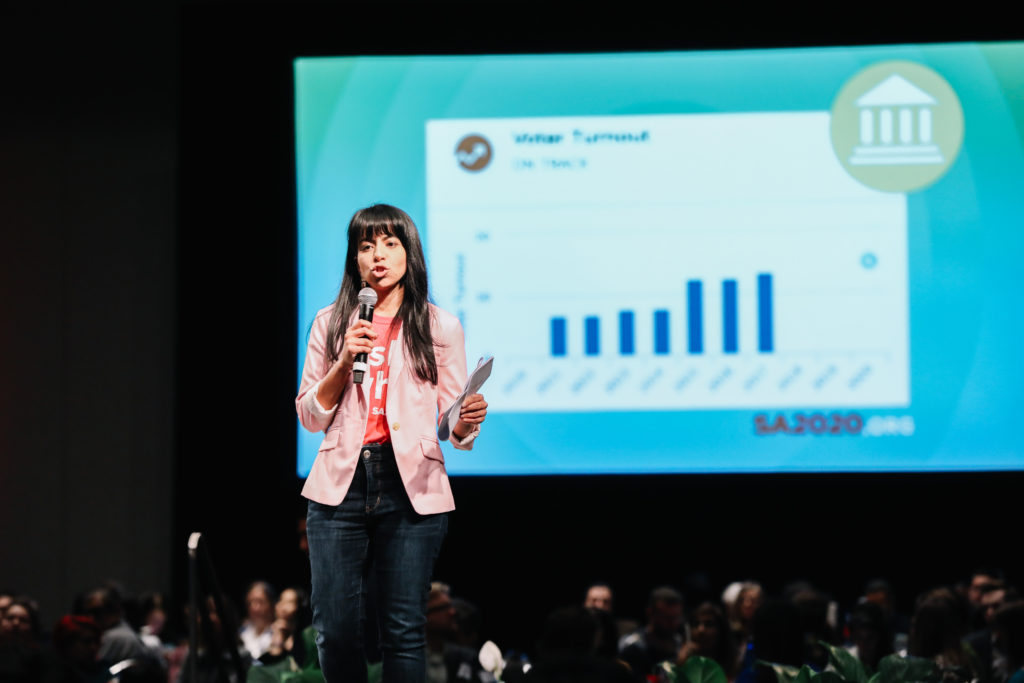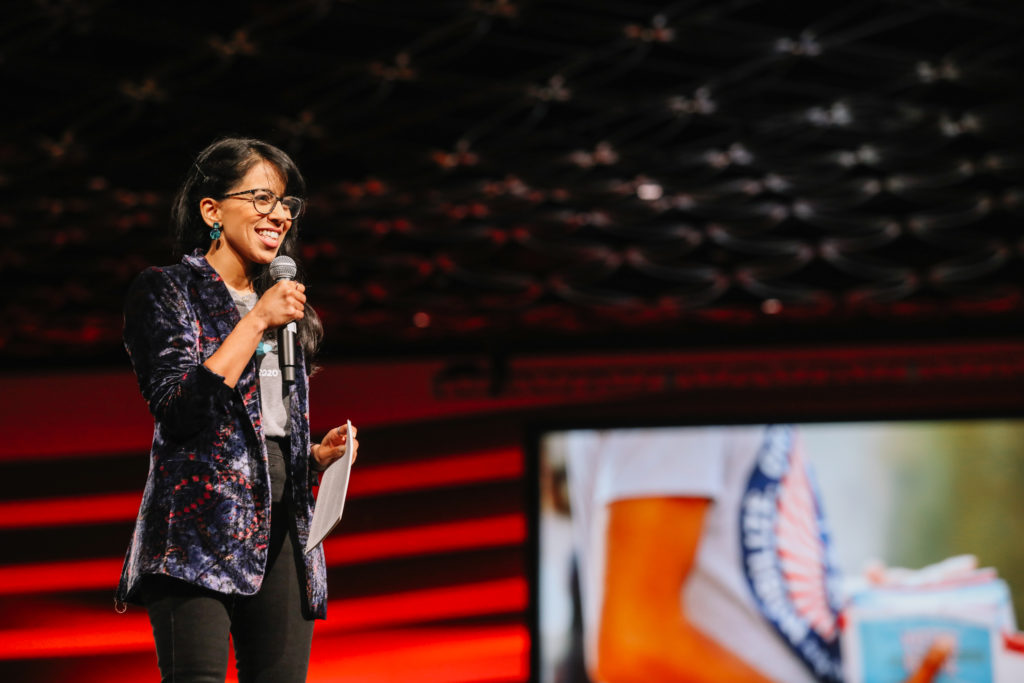As a South Asian woman raised in a tight-knit immigrant community in south Texas, the intersections of my identity and lived experiences cannot be separated from place.
I was a junior in High School when 9/11 happened. We watched the second tower get hit while in first period. The very next day my father put U.S. flag stickers on our car. I remember exactly what they looked like. The flags were waving. I thought the design was really pretty. “They need to know,” he said, “not to be afraid of us.”
I realized quickly that my Dad, my uncles, my cousins, my friends—so many people that I love—looked a lot like the suspected terrorists broadcast all over the news. It sent a strong message to my family and anyone who looked like us: “You do not belong.”
For close to twenty years, my father ran a gas station on the near west side of San Antonio. He doesn’t often talk about 9/11, but he once shared that people would drive up, see him at the cash register—a turban-wearing Sikh man—and drive away. It had such an impact on the family business, my parents were not sure they could afford me going to college immediately following high school.
I did make it to college, and two unexpected things happened for me when I got to St. Mary’s University: I started to feel like I belonged and I started to feel like I belonged within a whole institution. An entire university gave me a scholarship and invited me to learn. And I did.
I learned that racism precedes race. A professor put Malcolm X in my hands. It blew my mind that someone could grow their worldview so profoundly in just 39 years on this earth. I learned that Malcolm X and MLK were not adversaries. I learned that Black on Black crime is not real. I learned that it was Black women, including Kimberlé Crenshaw, who came up with the words “women of color” and “intersectionality” to advance the Women’s Movement and address the dual experiences of racism and sexism. I learned that Black people are still, to this day, paying the price of freedom with their lives. I learned that South Asians aren’t biologically destined to become doctors. There were actually federal immigration laws that targeted doctors and other medical professionals to come to the United States from South Asia. I learned that racism is so powerful that I had internalized it as a lack of my own self worth.

I started embodying an awareness of who I am, and where I come from, and how my thinking and actions about race, and about Black people, were misaligned with my values. I started to untangle what it meant to be raised in the Sikh faith tradition that rooted itself in love and service and justice, yet also raised in a community that is deeply racist.
I say “started to” because dismantling anti-Black racism is lifelong. It’s been 18 years since I first landed at St. Mary’s. And in all this time that I’ve been learning, Black people have been dying, which is to say that this learning is both lifelong and very urgent.
White people and non-Black people must be committed to actively learning, actively challenging ourselves and the world around us, and actively ensuring the policies, budgets, and programs we are overwhelmingly in positions of leadership to influence are anti-racist.
For me, all of these things are true: I am a woman who has experienced sexism, I’m a non-Black person of color who has experienced racism, and I have a responsibility to dismantle anti-Black racism.
It is why I am so proud to be named a 2020 Atlantic Fellow for Racial Equity: to build community and better futures with folks across the United States and South Africa who value racial justice. And to represent San Antonio, the city that raised me.
The city that saw me through blue ribbon public schools in the Northside Independent School District to become a first generation college graduate at St. Mary’s University where I studied the world and prepared to ultimately land at the University of Notre Dame’s Kroc Institute for International Peace Studies for graduate school. The city I carried with me as I worked in community development and peacebuilding in Lucknow, Bangalore, Gulu, Nairobi, and Accra.
The city that welcomed me home, nearly a decade after I left, to serve as the City of San Antonio’s first Chief Equity Officer. The city that is reaffirming and strengthening its shared vision for another decade and supports the organization that holds us accountable to that vision, SA2020.

San Antonio’s elected officials attribute the significance of governing locally to the fact that the city’s demographics today reflect the future of the country. According to the U.S. Census Bureau, the country will be majority people of color by the year 2043. To govern the people of San Antonio, in other words, is to govern the future of the United States. My vision for the world begins in San Antonio for a different reason. In 2010, nearly 6,000 San Antonians came together to write a vision for the future of the city. In addition to eleven specific Community Results, the community developed 62 goals and metrics by which to measure progress. Today, San Antonio is the only large city in the United States with a vision written by the people who call the city home, an independent nonprofit holding institutions accountable to realizing that vision (that’s SA2020), and more than 170 multi-sector organizations actively aligning their work to shared goals.
The city that makes me most proud also has serious work to do to reach that vision. Reaching our shared vision means race no longer determines or predicts life outcomes. Reaching our shared vision means Black Lives Matter in every policy, budget, and program decision in every institution.
My vision for the world is for people to realize their vision for their community, informed by their history of othering and their needs for belonging. San Antonio’s Community Vision demands shared responsibility for this work of belonging. Under the Community Result for Family Well-Being, San Antonians envisioned “the entire community tak[ing] responsibility for our collective well-being.” At SA2020 we say that we as individuals make up the systems we seek to change. We also know that human beings created inequities and, therefore, have the capacity to end them. That’s the world I’m working for and I am honored to do it in fellowship with Atlantic Fellows for Racial Equity and with you.

